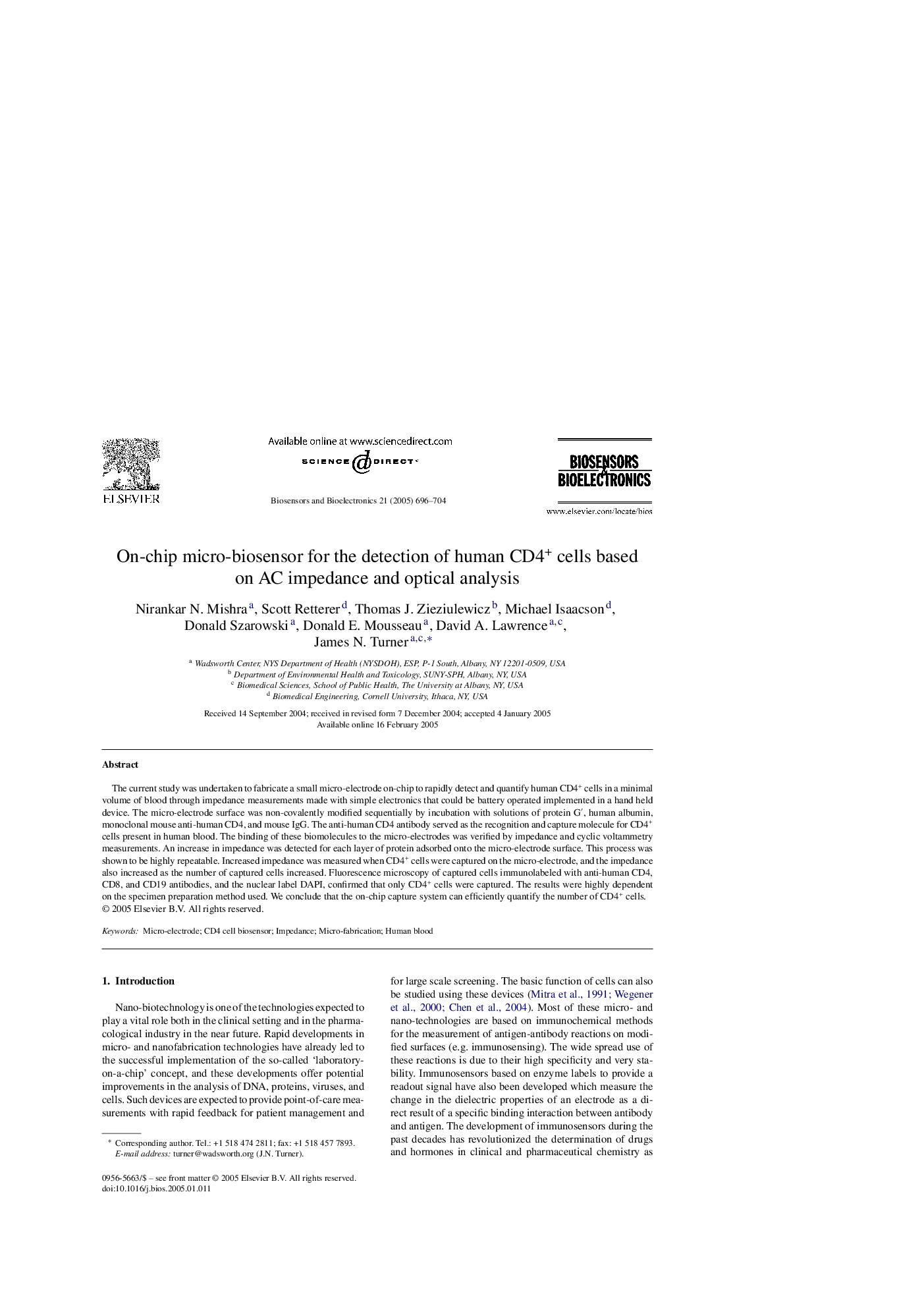| Article ID | Journal | Published Year | Pages | File Type |
|---|---|---|---|---|
| 10430097 | Biosensors and Bioelectronics | 2005 | 9 Pages |
Abstract
The current study was undertaken to fabricate a small micro-electrode on-chip to rapidly detect and quantify human CD4+ cells in a minimal volume of blood through impedance measurements made with simple electronics that could be battery operated implemented in a hand held device. The micro-electrode surface was non-covalently modified sequentially by incubation with solutions of protein Gâ², human albumin, monoclonal mouse anti-human CD4, and mouse IgG. The anti-human CD4 antibody served as the recognition and capture molecule for CD4+ cells present in human blood. The binding of these biomolecules to the micro-electrodes was verified by impedance and cyclic voltammetry measurements. An increase in impedance was detected for each layer of protein adsorbed onto the micro-electrode surface. This process was shown to be highly repeatable. Increased impedance was measured when CD4+ cells were captured on the micro-electrode, and the impedance also increased as the number of captured cells increased. Fluorescence microscopy of captured cells immunolabeled with anti-human CD4, CD8, and CD19 antibodies, and the nuclear label DAPI, confirmed that only CD4+ cells were captured. The results were highly dependent on the specimen preparation method used. We conclude that the on-chip capture system can efficiently quantify the number of CD4+ cells.
Related Topics
Physical Sciences and Engineering
Chemistry
Analytical Chemistry
Authors
Nirankar N. Mishra, Scott Retterer, Thomas J. Zieziulewicz, Michael Isaacson, Donald Szarowski, Donald E. Mousseau, David A. Lawrence, James N. Turner,
